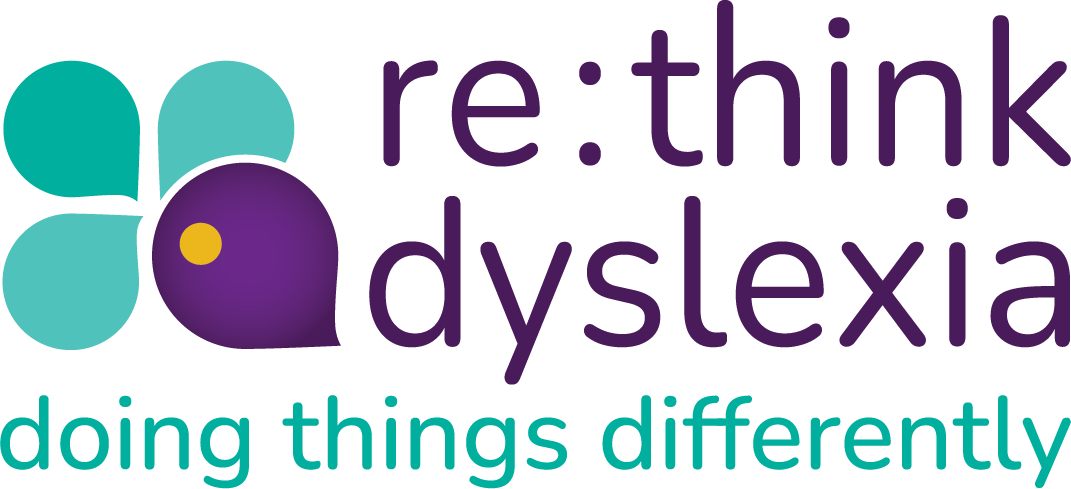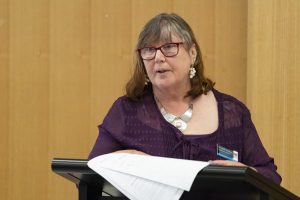The Dyslexic Researchers Collective


The Dyslexic Researchers Collective
The Dyslexic Research Collective is a community of practice bringing together dyslexic researchers and allies worldwide. The research collective aims to support and build a much-needed growing body of research that focuses on young people and adults with dyslexia and co-occurring difficulties. There is limited research to date that addresses dyslexia in adulthood and the intersectionality of this difficulty. Through our lived experience with dyslexia, we are joining forces globally and establishing research hubs in Australia, the United Kingdom (UK), and the United States of America (USA) to be a leading agency for change.
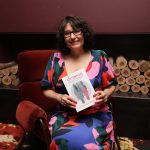
Dr Shae Wissell, Chair
DrPH MPH MHA BA. App. Sc (Speech Path)
Shae Wissell is a respected thought leader, researcher and award-winning advocate for adults with dyslexia, with a background in speech pathology, and a Master of Public Health and Health Administration and a Doctorate in Public Health. She is currently affiliated with Federation University where she recently supported research looking at neuroinlcusion of students and employees.
A recent graduate Shae undertook her research at La Trobe University’s School of Psychology and Public Health, Shae’s research centres on the lived experiences of adults with dyslexia in Australia. Her work explores the social inequalities individuals with dyslexia may face across healthcare, education, employment, interpersonal relationships, and social and emotional well-being. Shae has published locally and internationally on work experiences, mental health, and well-being of Australian adults with dyslexia. Shae recently published her second book Dyslexia insights into the hidden disability in and out of the workplace based on her thesis and lived experiences. She has also published four papers nationally and internationally, including:
- I hate calling it a disability_ Exploring how labels impact adults with dyslexia through an intersectionality lens
- Adults with dyslexia: A snapshot of the demands on adulthood in Australia. Australian Journal of Learning Difficulties
- You don’t look dyslexic”: Using the Job Demands – Resource model to explore workplace experiences of Australian adults with dyslexia
- Leading diverse workforces: Perspectives from managers and employers about dyslexic employees in Australian workplaces. Published in International Journal of Environmental Research and Public Health. S Ed Dyslexia.
Shae was recently awarded a Highly Commended, Tertiary Student Research award for her work, Dyslexia: The Hidden Disability in the Workplace. Further information about Shae’s work with La Trobe can be found here.
Dr Judith Hudson
C.Psychol. AFBPsS .IAAPS PhD. M.Ed. BA Cert Ed. Adv Dip Ed SEN. RSA Dip SpLD/Dyslexia AMBDA
Dr Judith Hudson is a retired specialist teacher, Chartered Psychologist, Assessor, Author and Researcher of special educational needs, that result in congenital developmental disorders such as dyslexia, ADHD, and disorders on the autism spectrum. She shares her time between Tasmania and Wales, U.K.
She is an Associate Adjunct and visiting academic at the School of Education at the University of Tasmania. She advocates for educating teachers to identify and understand how to teach children with dyslexia and specific learning and literacy difficulties. She has written and taught modules for post-grad study in Australia, ‘Educating students with dyslexia and learning difficulties’. Judith is on the Board of Square Pegs Dyslexia Support Group, Tasmania and a dyslexia Ambassador. She is a PhD supervisor for the University of Tasmania and Flinders University, South Australia.
Her interest, study and passion for all things dyslexia spanning some forty years, she has a dyslexic husband and grandson both of whose constant achievements in life never cease to amaze her.
Judith is a published academic and recently published a book chapter on Realising the Sustainable Development Goals to enrich teacher education for children, young
people, and lifelong learners with disabilities. In the Education and the UN Sustainable Development Goals. Education for Sustainability.
Judith is also the -co-chair of the Dear Dyslexic dyslexic PhD support group. More information on teh group can be found here.
Dr Malvika Behl, West Texas A&M University 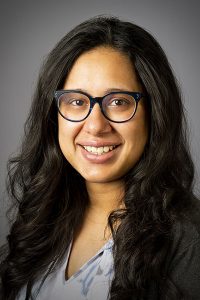
P.h.D MACo BA (Pysch Soc EC)
Malvika is an Assistant Professor at The University of Texas at San Antonio. She holds a PhD in Counsellor Education and Supervision in Texas from the University of Toledo, Ohio. Malvika is a Licensed Professional Counsellor (LPC) in Texas and School Counsellor in Ohio, with over eight years of academic experience teaching counselling courses. Since 2013, she has been actively involved in counselling, working with adults and children with learning disabilities. Malvika has collaborated with local and international organisations, including the Centre for Learning Disabilities and Partners Resource Network, Maharashtra Dyslexia Association and Dyslexia Organisation Kenya. She has presented in the United States and in other countries related to topics on the mental health of individuals with Learning Disabilities, and the impact of the diagnosis of Learning Disabilities on the family system. Malvika has published in both national and international journals:
- Denton, K., Coneway, B., Simmons, M., Behl, M., & Shin, M. (2022). Parents’ voices matter: A mixed‐method study on the dyslexia diagnosis process. Psychology in the Schools, 59(11), 2267-2286.
- Behl, M., Green, L., Garcia, E., & Laux, J. (2024). Learning from the pandemic: School counsellor experience during the pandemic in the United States. Journal of Psychologists and Counsellors in Schools, 34(3), 319-333.
- Behl, M. (2024), Partnering with school and school counselors: focusing on Mental health of Children and Adolescents with Specific Learning Disabilities. Southern Association of Counselor Education and Supervision Winder 2024 Newsletter. 19(1).
Malvika also has several research under review or in process:
- Behl, M., Rogers, E., & Clark, M. (under review). Test-retest Reliability of the Rosenberg Self-Esteem Scale and the Spence Children Anxiety Scale for Children with Specific Learning Disabilities: A Pilot Study
- Behl, M., Denton, K., Coneway, B. & Shin, M. (Manuscript in progress) Lived Experience of Parents of Children with Learning Disabilities
- Behl, M. & Laux, J. (Manuscript in progress) Emotional Regulations of Adults with Learning Disabilities.
- Behl, M. & Lee, D. (Manuscript in progress) Confirmatory Factor Analysis of the Rosenberg Self-Esteem Scale: Adolescents with Learning Disabilities
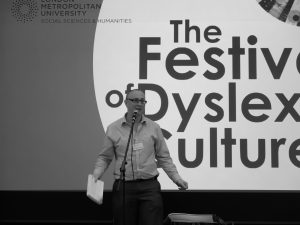 Dr Neil Alexander-Passe
Dr Neil Alexander-Passe
experiences dyslexia himself and has over the last 20 years specialised in the emotional experience of having a learning difference. He has published fourteen books and ten peer review papers in the field of dyslexia, looking at correlations with mental health, creativity, parenting and marriage. He gained his PhD in 2018 investigating ‘Dyslexia, Traumatic Schooling, and Post-School Success.’ His current dyslexia focus is with a ‘bi-ability’ theoretical model for dyslexia and the use of a ‘post-traumatic growth (PTG)’ concept to understand how many individuals with dyslexia can be successful ‘despite or because’ they experienced traumatic schooling as children. His latest book was published in 2023 on ‘Dyslexia, Neurodiversity and Crime: investigating the school to prison pipeline’. He is now completing the writing for two books on ‘ADHD and Crime’, one from a policy and the other from a parent’s perspective.
Neil is the Special Educational Needs and Disabilities Coordinator (SENDCO) at a large secondary school in North London. Neil is a Scientific Board Member for the Asia Pacific Journal of Developmental Differences, Dyslexia Association of Singapore.
Neil has written extensively and published several peer-reviewed research papers and books some of his work includes:
-
- Dyslexia, Neurodiversity, and Crime: Investigating the ‘School to Prison Pipeline’ (Dio Press) – NEW!!!
- Invisible Disabilities, Visible Success (Dio Press)
- The Successful Dyslexic-Identify the keys to unlock your potential (Sense Publishers)
- Surviving School as a Dyslexic Teenager: A Guide for Parents and their Teenager Children (Dio Press)
Dr Helen Rose 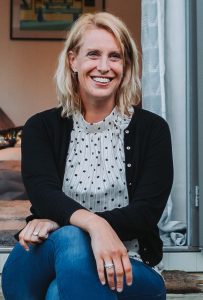
P.h.D
Helen is a fully qualified special needs teacher and former SENCO, now working as an independent educational research consultant, specialist assessor and SEND expert. Helen is Co-Vice Chair of the British Dyslexia Association, Chair of the Wiltshire Dyslexia Association and is on the board of the US, not-for profit National Coalition of Independent Scholars. She has consulted for the British Dyslexia Association, The Committee for Science and Technology (part of the UK Government), and Wiltshire Local Authority. She also works internationally with various third sector and commercial organisations with evaluation, consultancy and resource development. Helen’s research explores stakeholder experiences of SEND provision within the mainstream education sector, focussing on the empowerment of those supporting young people, to help them to take ownership of their own learning. She uses her findings from research to inform her own practice and to support other practitioner in their own work, through CPD webinars and live sessions.
Helen tweets as @drhelenross and regularly speaks on dyslexia and special educational needs.
